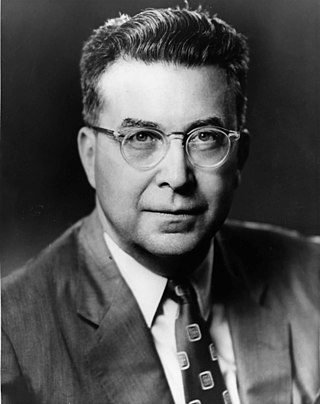
The foreign relations of Angola are based on Angola's strong support of U.S. foreign policy as the Angolan economy is dependent on U.S. foreign aid. From 1975 to 1989, Angola was aligned with the Eastern bloc, in particular the Soviet Union, Libya, and Cuba. Since then, it has focused on improving relationships with Western countries, cultivating links with other Portuguese-speaking countries, and asserting its own national interests in Central Africa through military and diplomatic intervention. In 1993, it established formal diplomatic relations with the United States. It has entered the Southern African Development Community as a vehicle for improving ties with its largely Anglophone neighbors to the south. Zimbabwe and Namibia joined Angola in its military intervention in the Democratic Republic of the Congo, where Angolan troops remain in support of the Joseph Kabila government. It also has intervened in the Republic of the Congo (Brazzaville) in support of Denis Sassou-Nguesso in the civil war.

Botswana has put a premium on economic and political integration in southern Africa. It has sought to make the Southern African Development Community (SADC) a working vehicle for economic development, and it has promoted efforts to make the region self-policing in terms of preventive diplomacy, conflict resolution, and good governance.

The foreign relations of Eritrea are the policies of the Eritrean government by which it administers its external relations with other nations. Since its independence, Eritrea's foreign relations have been dominated by conflict and confrontation, both in the regional and international arenas. It has maintained often troubled, and usually violent, relations with its neighbors, including brief armed conflicts with Yemen and Djibouti and a destructive war with its bigger-neighbour, Ethiopia. At present, Eritrea has very tense relations with neighboring Ethiopia and Djibouti. Relations in the international arena also have been strained since the last decade, particularly with major powers. What appeared cordial relations with the US in the 1990s turned acrimonious following the border war with Ethiopia, 1998-2000. Although the two nations have a close working relationship regarding the ongoing war on terror, there has been a growing tension in other areas. Ties with international organizations such as the United Nations, the African Union, and the European Union have also been complicated in part because of Eritrea's outrage at their reluctance to force Ethiopia to accept a boundary commission ruling issued in 2002.

Lesotho's geographic location makes it extremely vulnerable to political and economic developments in South Africa. Its capital is the small city of Maseru. It is a member of many regional economic organizations including the Southern African Development Community (SADC) and the Southern African Customs Union (SACU). Lesotho also is active in the United Nations, the Organisation of African Unity, now the African Union, the Non-Aligned Movement, and many other international organizations. In addition to the Republic of Korea, the United States, South Africa, Ireland, People's Republic of China, Libya, and the European Union all currently retain resident diplomatic missions in Lesotho. Foreign relations of Lesotho are administered by the Ministry of Foreign Affairs and International Relations.

Malawi's former President Bakili Muluzi continued the pro-Western foreign policy established by his predecessor, Hastings Banda. It maintains excellent diplomatic relations with principal Western countries. Malawi's close relations with South Africa throughout the apartheid era strained its relations with other African nations. Following the collapse of apartheid in 1994, Malawi developed, and currently maintains, strong diplomatic relations with all African countries.
The foreign relations of South Africa have spanned from the country's time as a Dominion of the British Empire to its isolationist policies under apartheid to its position as a responsible international actor taking a key role in Africa, particularly Southern Africa. South Africa is a member of the United Nations, the African Union and the Commonwealth of Nations. Considered a possible permanent addition to the United Nations Security Council, South Africa was elected in 2006, 2010 and 2018 by the UN General Assembly to serve on the Security Council. South African President Cyril Ramaphosa was the chair of the African Union from 2020 to 2021, the second time South Africa has chaired the organisation since its formation in 2003.

Zimbabwe maintains relations with various countries around the world, and maintains close diplomatic relations with neighboring nations.

Joseph Charles Satterthwaite was an American career diplomat.

The Republic of South Sudan established relations with sovereign states and international organizations following independence on 9 July 2011. South Sudan's former ruling country of Sudan was the first state in the world to recognize South Sudan.

The Embassy of the Republic of Indonesia in Pretoria is the diplomatic mission of the Republic of Indonesia to the Republic of South Africa and concurrently accredited to the Republic of Botswana, the Kingdom of Eswatini, and the Kingdom of Lesotho. The embassy is located at 949 Francis Baard Street in the suburb of Arcadia, Pretoria. Indonesia also has a consulate general in Cape Town and an honorary consulate in Mbabane, Eswatini.

Relations between Czechoslovakia and the United States refer to two periods in Czechoslovakia's history. The first being the establishment of Czechoslovakia after its declaration of independence in 1918 from Austria-Hungary initiated by President Woodrow Wilson as part of his Fourteen Points following World War I. The second period being the communist era from 1948 when relations were strained, until 1992 when Czechoslovakia split forming the independent nations of the Czech Republic and Slovakia as a result of the 1989 Velvet Revolution.

The Embassy of the United States in Addis Ababa is the diplomatic mission of the United States of America in Ethiopia.













